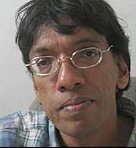President’s Wife Can Be A Better Guide In Empathy For Post-War Reconciliation
By Jehan Perera -August 20, 2012
 The highlight of last week’s visit to Sri Lanka by Nobel Peace Prize winner Leymah Gbowee of Liberia was the presentation of a Sri Lankan Women’s Agenda on Peace, Security and Development to the government. The many co-sponsors of this Women’s Agenda would have wished to make this presentation directly to President Mahinda Rajapaksa himself. However, they had to be content with handing over the document to senior minister Tissa Vitarana whose commitment to minority rights and inter-ethnic reconciliation has made him a popular and trusted figure to civic activists. At the event organized in Kandy by Visaka Dharmadasa whose soldier son went missing in the war and now heads the Association of War Affected Women, it was Professor Vitarana who took to the floor on behalf of the government.
The highlight of last week’s visit to Sri Lanka by Nobel Peace Prize winner Leymah Gbowee of Liberia was the presentation of a Sri Lankan Women’s Agenda on Peace, Security and Development to the government. The many co-sponsors of this Women’s Agenda would have wished to make this presentation directly to President Mahinda Rajapaksa himself. However, they had to be content with handing over the document to senior minister Tissa Vitarana whose commitment to minority rights and inter-ethnic reconciliation has made him a popular and trusted figure to civic activists. At the event organized in Kandy by Visaka Dharmadasa whose soldier son went missing in the war and now heads the Association of War Affected Women, it was Professor Vitarana who took to the floor on behalf of the government.
In his keynote speech, Prof Vitarana bemoaned the prevalent political culture in the country on two counts. He revealed that during deliberations at the Parliamentary Select Committee on electoral reforms, he had advocated that as much as 30 per cent of seats in elected bodies to be allocated to women. At present the proportion of women in elected bodies languishes as little as 2 percent at the local level, 3 percent at the provincial level and 6 percent at the national level. As chairman of the All Party Representatives Committee appointed in 2007 by President Rajapaksa to find a solution to the ethnic conflict, Prof. Vitarana was in a unique position to press the polity for political reform. But in a manifestation of one of the disappointing features of the country’s political culture, the women MPs in the committee opted for ten per cent, much to his surprise, he said. Perhaps they have felt that an incremental approach was the safer one.
Another important observation made by Prof. Vitarana on this occasion was that post-war reconciliation practices in the country needed to be improved. He said that although the war ended three years ago, sufficient steps had not been taken to ensure the reconciliation process and the country needed to expedite steps towards reaching that goal. He also praised the efforts of the women’s organization in preparing the women’s agenda for peace, security and development and said that the proposals would be useful in the government’s programme to bring about reconciliation. He said that in particular, women and children suffered heavily during the 30-year turmoil.

